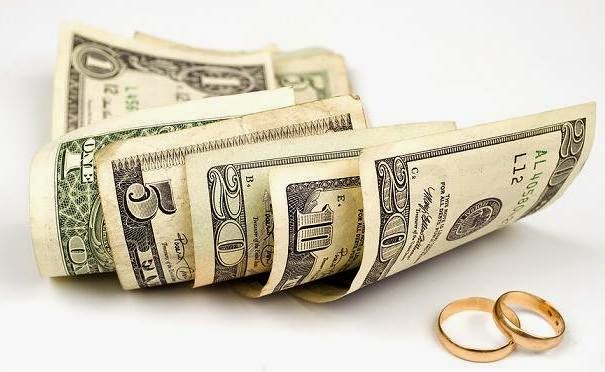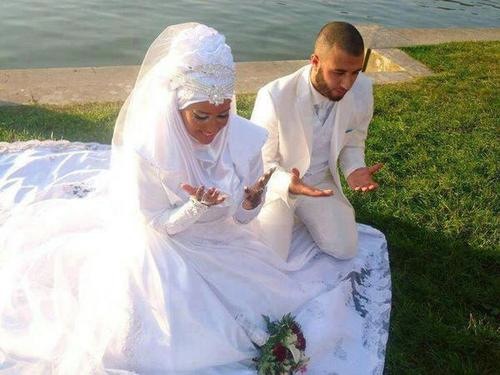An Islamic marriage clearly defines the primary roles and responsibilities of both partners – husband and wife – and accordingly demarcates the rules regarding the earning and spending of wealth.
This blessed marital union, known in Islam as nikah, has a few essential components, without which it is not considered complete. One of these is the payment of the mahr or dowry, which is an amount of wealth that the husband pays to his wife.
Paying this mahr is obligatory, because Allah has called it “fareedah” in the Quran and commanded Muslim men to pay it “happily” to their wives.
Mahr in the Light of Quran and Hadith
The question arises, as to why Allah has made it obligatory upon Muslim men who wish to marry a woman, to first stipulate and eventually pay a specified amount of wealth in order for them to be able to acquire her as a lawful wedded wife?
The necessity of paying mahr as a strict pre-condition for marrying a woman is indicated by the fact that whenever a single man would express his desire to get married in front of Allah’s messenger, or inform him that he had recently got married, the Prophet would ask him what he could give, or what he’d already given, to his wife as mahr.
This indicates the absolute importance of paying mahr to the bride as soon as the nikah is done.
The Quran mentions mahr using the Arabic word “ujoor”, which is the plural of the word “ajr”. This Arabic word means ‘compensation, recompense, or reward for what someone has done’.
A narration recorded (with slight differences) in two of the 6 authentic books of hadiths, Sunan Ibn Majah and Jami` Al-Tirmidhi, further provides explanation of the wisdom behind ordaining mahr as a pre-condition of Islamic nikah.
In this hadith, Prophet Muhammad (peace be upon him) clearly described the reason for paying the mahr as:
“If he entered into her, then the Mahr is for her in lieu of what he enjoyed from her private part.”
Therefore, in the light of the Quran and Hadith, it can safely be said that the mahr is the amount of wealth that a Muslim man must pay in order to be able to start to, and continue to, enjoy a Muslim woman’s private parts in the way sanctioned by Allah i.e. through halal conjugal relations.
Furthermore, Allah has ordained patience in striving to remain chaste in the Quran for those single Muslim men who desire to get married, but do not possess enough wealth to pay as mahr.
Why Give Mahr at All?
At this point, the question that pops up into one’s mind is: Why would Allah make mahr obligatory?
Why should a lawfully wedded Muslim wife ‘be paid’ something by her husband for him to start to enjoy physical intimacy with her?
I have heard some indiscreet and blunt critics even compare this ‘payment’ of mahr at the time of nikah, as being seemingly akin to — in their perception — the payment given by male customers to women who need to sell their bodies, for their services (I seek refuge with Allah!).
The more we have to pay for, sacrifice, spend, or work hard to acquire something, the more we value it and treat it well when it actually comes into our lives.
In order to further understand the concept, ask yourself: What is your attitude towards something that you get for free?
Is it not true that we all tend to undermine, waste, ignore or even misuse the things that we get easily, without any effort or monetary payment?
Just compare how you treat anything that you paid a large amount of sweat, toil or money to acquire, and something that you got for free. You will be able to see the difference.
Well, Allah wants men to maintain, protect, honor, and value their wives because a wife is the only woman on earth that a Muslim man is allowed to enjoy sexually.
To prevent women from being acquired very easily for marriage (without any struggle or sacrifice), or to be cheapened, undermined, abused, and discarded at will by men, Allah made it obligatory upon the latter to pay something to them (anything of value, small or large), when they get married to them, even after obtaining their guardians’ consent for the marriage.
Along the same lines, Allah also obligated Muslim men to financially provide for their wives’ basic food, clothing, shelter, and maintenance needs on a continuous basis after the marriage.

How Much? Mahr at the Time of the Prophet
Incidents from the Seerah of Prophet Muhammad (peace be upon him) and his companions provide various examples about the types and value of the mahr that were given by husbands to wives during his life. The amounts and values of mahr varied from little to a lot.
Prophet Muhammad said regarding the value of mahr:
“Go and look for something, even if it is a ring of iron.” (Al-Bukhari)
The Prophet was also known to encourage keeping the mahr simple and easy to give:
“The best of dowers is the simplest.” (Al-Hakim, Al-Bayhaqi)
From a simple iron ring, to a piece of gold as big as a date-stone, to the knowledge of the Quran, Prophet Muhammad approved of several kinds of mahr when he conducted or facilitated marriages of his companions.
It is also known from a particular case of khul’ (divorce that is initiated by the wife), that one man had given an entire garden to his wife as mahr.
This indicates that if a man wants to provide his wife with a mahr that is high in value, it is permissible, as long as he doesn’t do it to show off his wealth, and his resources do not become depleted as a result.
The Quran also allows a high amount of mahr, by mentioning the Arabic word “qintar”, which means ‘a large weight or measure (of property), heaped up property’.
However, the most important question that remains is: how much mahr did the Prophet give to his own wives?
According to a hadith, narrated from his wife Aisha, Prophet Muhammad gave “twelve uqiyah and a nashsh” as mahr to his wives, which amounts to 500 dirhams. According to the calculations and conversions to modern-day global currency carried out by qualified scholars, the value of this mahr amounts to between $300-400.
(From Discovering Islam archive)



